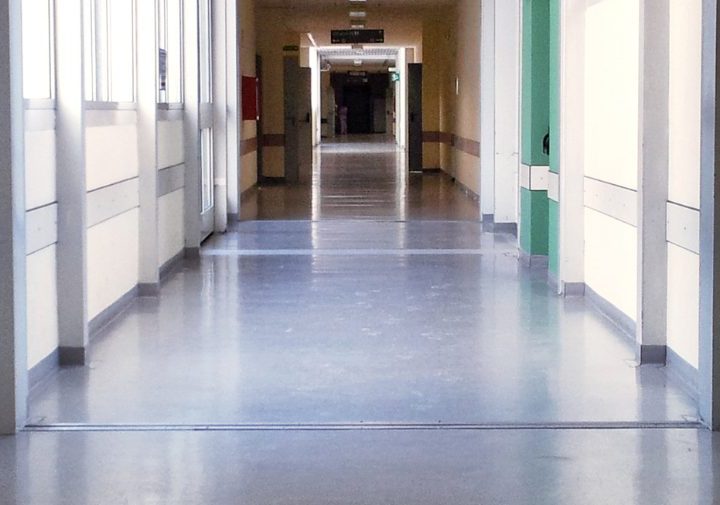The Article 2 Inquest into the death of Sophie Towle concluded on 24 October 2025. The inquest was heard over 12 days at Nottingham Coroner’s Court before HM Assistant Coroner Alexandra Pountney.
Sophie died on 27 May 2025 as a result of a Pulmonary Thromboembolus secondary to a Deep Vein Thrombosis (DVT) in the left leg. More commonly referred to as a blood clot, the Jury found that this was probably caused by a combination of obesity and reduced mobility, the latter occurring as a consequence of a serious self-harm incident which occurred on 12 May 2024. The Jury found that a combination of failings in respect of her care, including the neglect of mental health staff, more than minimally contributed to her death.
Circumstances Leading Up to Sophie’s Death
Sophie had a diagnosis of Emotionally Unstable Personality Disorder (EUPD) and Attention Deficit Hyperactivity Disorder (ADHD) as well as a complex history of self-harm. She had been known to adult mental health services since 13 March 2021
On 05 December 2024, Sophie was admitted to Brodsworth Ward under the care of Rotherham Doncaster and South Humber NHS Foundation Trust (RDASH) and was detained under s.3 of the Mental Health Act 1983. This was an out of area placement due a self-harm incident occurring in the vicinity several days prior. Sophie was detained on Brodsworth Ward for approximately five months, and her family noted a gradual improvement in her mental health and overall presentation during her stay.
On 25 April 2024, Sophie was transferred to Fir Ward under the care of Nottinghamshire Healthcare NHS Foundation Trust (NHFT). Neither Sophie nor her family had been consulted about the decision to transfer her to Nottinghamshire prior to the transfer, with details of the move only being communicated to Sophie at the point of transfer itself.
Due to the lack of preparation for the move, the Jury found that the transfer destabilised Sophie and determined that there was “no clinical rationale” for the transfer itself. The Jury agreed with the admission made by RDASH during the proceedings that communication to Sophie, her family and her care co-ordinator in respect of the transfer was poor.
Following the transfer to Fir Ward, Sophie was initially placed on 1:1 observation for 24 hours a day. The Jury found that no body mapping, weight management planning or wound care planning took place upon admission.
On 12 May 2024, Sophie engaged in a serious act of self-harm whilst a staff member was observing her on 1:1 observation. The incident resulted a foreign object ultimately being inserted into her left leg, resulting in the Jury determining that the observation taking place during this period was not adequate, and not in line with Trust Policy.
Following the incident, Sophie was transferred to King’s Mill Hospital for a review of her physical health. It was clinically determined by the Orthopaedic Department however that the object would not be removed as its positioning would not cause ongoing harm. Sophie was therefore discharged from King’s Mill on 13 May 2025, returning to Fir Ward in a wheelchair.
The following day, a decision was made by staff to remove Sophie’s 1:1 observation and replace this with observations every 10-minutes, with 1:1 support around meal times. This went against the wishes of Sophie’s family who felt that the reduction would further destabilase her, particularly after a significant self-harm incident in the day’s prior. The Jury found that there was a lack of clarity / purpose for reducing observations, given Sophie’s presentation at the time.
From 12 – 27 May 2024, Sophie was in an increasing amount of pain as a result of the foreign object in her leg. Whilst initially mobilising by way of a crutch, her ability to mobilise significantly reduced as days progressed. Staff on Fir Ward were increasingly concerned about the risk of infection and contacted the Orthopaedic Department at King’s Mill Hospital on a number of occasions to inform the clinicians of their concerns. Without physically re-assessing Sophie, staff at King’s Mill maintained the clinical evaluation that the foreign object would not be removed. The Jury found that whilst the initial rationale not to operate was adequate, there was a lack of curiosity from the Orthopaedic team relating to wider contributing factors such mobility status, and found the lack of any re-assessment to be inadequate.
On 27 May 2024, Sophie became physically unwell and endured a cardiac arrest from which she did not sadly recover. As stated above, Sophie sadly died as a result of a large Pulmonary Thromboembolus due to underlying DVT of the leg veins.
During the course of the proceedings, it was admitted by NHFT that whilst on Fir Ward, there was a failure to complete further assessments of Sophie’s Venous Thromboembolism (VTE) risk, either periodically or when circumstances changed to increase her risk, such as reduced mobility and/or retention of the foreign body in Sophie’s leg. NHFT accepted that there was no formalised plan to manage Sophie’s obesity or support the monitoring of Sophie’s leg wound and admitted that physical health checks were not consistently obtained in accordance with her care plan.
In turn, it was accepted by NHFT that in failing to manage Sophie’s VTE risk after the foreign object was inserted into her leg, this probably more than minimally contributed to her death. The Jury ultimately agreed with this admission.
The Jury’s Conclusion
The following conclusions were made by the Jury’s as to Sophie’s death: –
-
Sophie’s death was probably more than minimally contributed to by: –
-
The decision to transfer Sophie between mental health hospitals
-
The risk management around Sophie’s access to harmful items
-
The adequacy of 1:1 observations on 12th May
-
The adequacy and / or frequency of VTE Risk Assessment
-
Failing to notice the fact and significance of Sophie’s reduction in mobility after the 12th May
-
The joint information sharing and the obtaining of information between the Orthopaedics Department and the Mental Health Hospital in Nottinghamshire regarding Sophie’s presentation between 13th – 23rd
-
Staffing levels and staff experiences at the Mental Health Hospital in Nottinghamshire
-
-
Sophie’s death was possibly, more than minimally contributed to by: –
-
The decision to remove Sophie’s 1:1 observations in Nottingham
-
Communication and management around Sophie’s transfer from Doncaster to Nottinghamshire
-
The implementation, monitoring and adherence to care plans
-
The care and treatment in the Orthopaedics Department
-
It was ultimately concluded that Sophie’s death was contributed to by neglect.
Assistant Coroner Alexandra Pountney will be issuing a Prevention of Future Deaths Report to both NHFT and Sherwood Forest Hospitals Foundation Trust, who run King’s Mill Hospital.
The report issued to NHFT will touch on concerns arising in relation to the VTE Policy as well as concerns over the disbanding of the Trust’s Personality Disorder Hub. The report issued to Sherwood Forest Hospitals will touch on concerns raised in connection with its policy of removing foreign objects. Each of the reports will also address a lack of joined-up thinking in relation to liaison between physical and mental health professionals.
A Prevention of Future Deaths Report will also be issued to the Secretary of State for Health and Social Care in respect of what the Coroner perceived to be an insufficient number of staff members situated on Mental Health Wards and concerns were also expressed regarding the level of experience of these staff members. The Coroner notes that this is a matter of grave concern resulting in wards not functioning safely and patients being at risk of death as a result.
Sophie’s family were represented throughout the proceedings by Kelly Darlington, Partner at Farleys Solicitors and Lucy McCann of 1 Crown Office Row.







